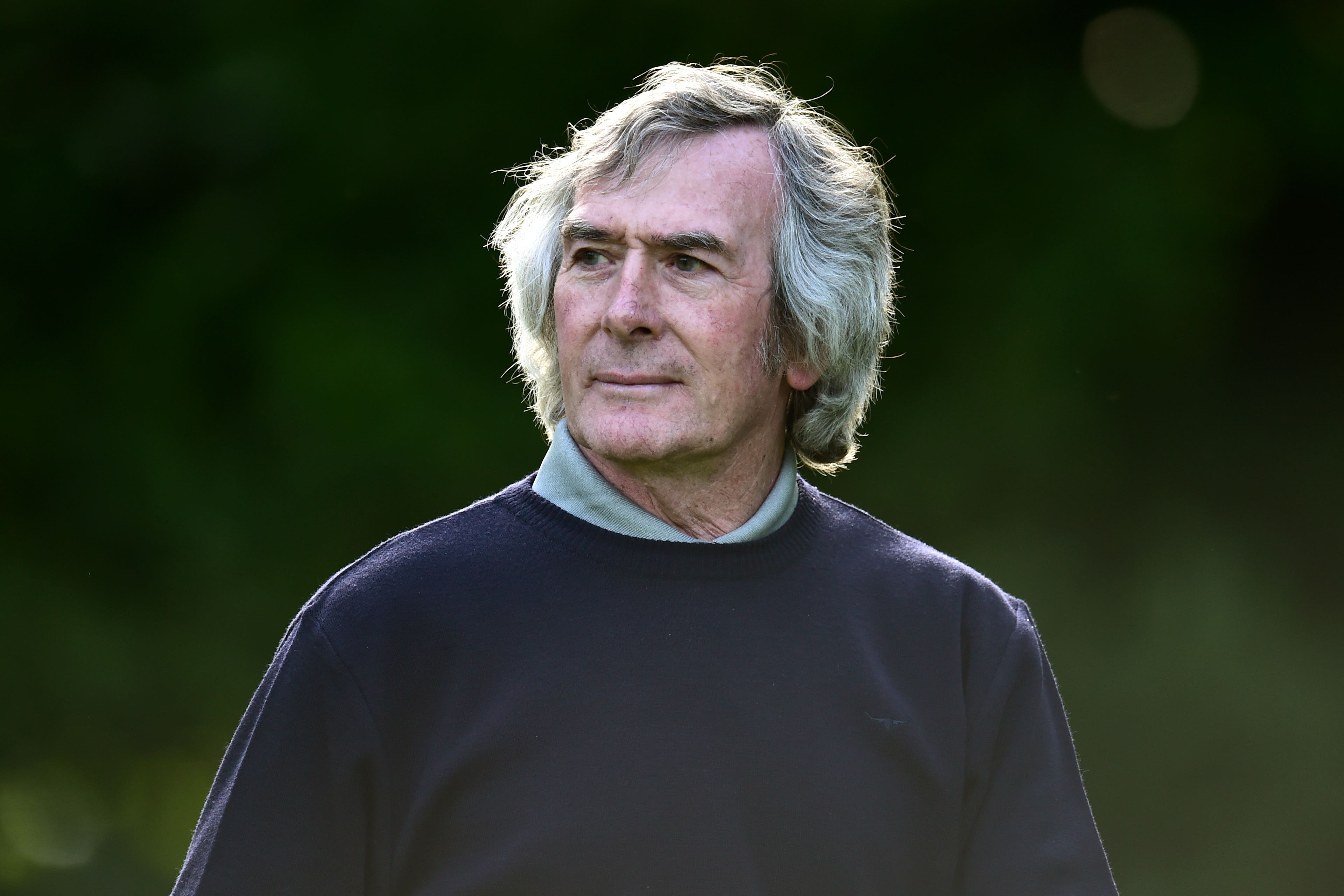Northern Ireland great Pat Jennings celebrates being made a CBE
Jennings’ 119 caps for Northern Ireland stood as a record until October 2020

Former Northern Ireland goalkeeper Pat Jennings has been made a CBE in the New Year Honours List.
Jennings, 77, won five major trophies at club level with Tottenham and Arsenal as well as other individual awards and accolades, but says the CBE is “without a doubt” the biggest and the best.
His 119 caps for Northern Ireland was a record that was only surpassed by Steven Davis in October 2020, and he represented his country at the 1982 and 1986 World Cup finals.
Not bad at all for someone who says goalkeeping “wasn’t something he set out to do” growing up in Newry.
“We never had any pitches, you threw a couple of coats down or some stones and that was the goal,” he told the PA news agency.
“If you went in goal you were obviously busy, because however many there were playing were taking shots at you.
“I left school at 15 and worked at one of the local linen factories. The factory closed after 10 months or a year and I went to work in a timber gang with my dad in the mountains outside of Newry.
“My brother, who played for the Newry United team, told me the goalkeeper was going to England to look for work, and asked me: ‘Why don’t you come down to training? You might get a game.’”
Jennings did indeed get a game, and impressed enough in those initial months to earn selection for the Northern Ireland under-19 team.
“At the time I was 17 and I’d never been outside Ireland,” he said.
“I literally came off the mountain and the timber gang and 10 days later I’m playing in the final of a European junior cup against England at Wembley.”
In 1963 he moved to England permanently, leaving Newry Town to join Watford, who were in the Third Division.
He impressed enough with the Hornets to earn his first senior Northern Ireland cap at the age of 18 in a British Home Championship match against Wales, making his debut alongside a certain George Best.
“I took over from the great Harry Gregg, who had forgotten more about goalkeeping than I knew at that stage,” Jennings said.
He joined Spurs in the summer of 1964, and describes winning his first FA Cup with Tottenham in 1967 as the high point of his club career.
“That was the massive competition in our day, the FA Cup final was shown around the world,” he said.
Jennings went on to score in the Charity Shield victory over Manchester United later that year, and won the UEFA Cup and two League Cups with Spurs.
He was chosen as the Professional Footballers’ Association Player of the Year in 1976 but a year later Tottenham let him go.
“It was the worst day of my life when (manager) Keith Burkinshaw said ‘you’re available for transfer, we’re not renewing your contract’,” Jennings said.
It has been said that Spurs were happy to let him leave thinking his best days were behind him. However, Jennings says he read a book during one of the Covid-19 lockdowns by former Tottenham manager Bill Nicholson, who served as a consultant to Burkinshaw, and discovered his departure had come about because Spurs were mindful of new legislation that would have allowed Jennings to leave on a free transfer if he had stayed for a further season.
His eventual move to north London rivals Arsenal raised eyebrows, and he went on to feature in three successive FA Cup finals for the Gunners between 1978 and 1980, winning the one in the middle against Manchester United.
Jennings made his World Cup finals bow in 1982, where they beat hosts Spain and made it to the second group stage.
“It was just unbelievable,” he said.
“I’d been trying since George Best and myself joining the national team in 1964, and every four years (going through) qualifying and thinking ‘would it be this year?’” he said.
“When you had got to my stage, at 36, you’re thinking ‘it’s not going to happen’. But somehow it did happen. And to go out and there and beat the host nation was incredible.”
What was even more remarkable was that he made it back for a second time in 1986, having rejoined Tottenham to keep himself match-fit for the finals in Mexico.
His 119th and final senior international appearance came in a 3-0 defeat to Brazil on his 41st birthday, a match Jennings describes as being “a dream”, even if it is best remembered for him being beaten by a rocket of a shot from Brazil full-back Josimar. At the time, he was the oldest player to feature in a World Cup finals match.
Jennings is still on the staff at Tottenham, a club he has now been associated with 43 years in all. He also values the chance he has been given to reward Northern Ireland’s grassroots heroes through his work with McDonald’s and the Irish Football Association.
“I love the job because it brings you back to where it all started for me, in the street league,” he said.
“Those people who work in grassroots football up and down the country, those were the people that set me up in those (early) years.”
Join our commenting forum
Join thought-provoking conversations, follow other Independent readers and see their replies
Comments

Bookmark popover
Removed from bookmarks